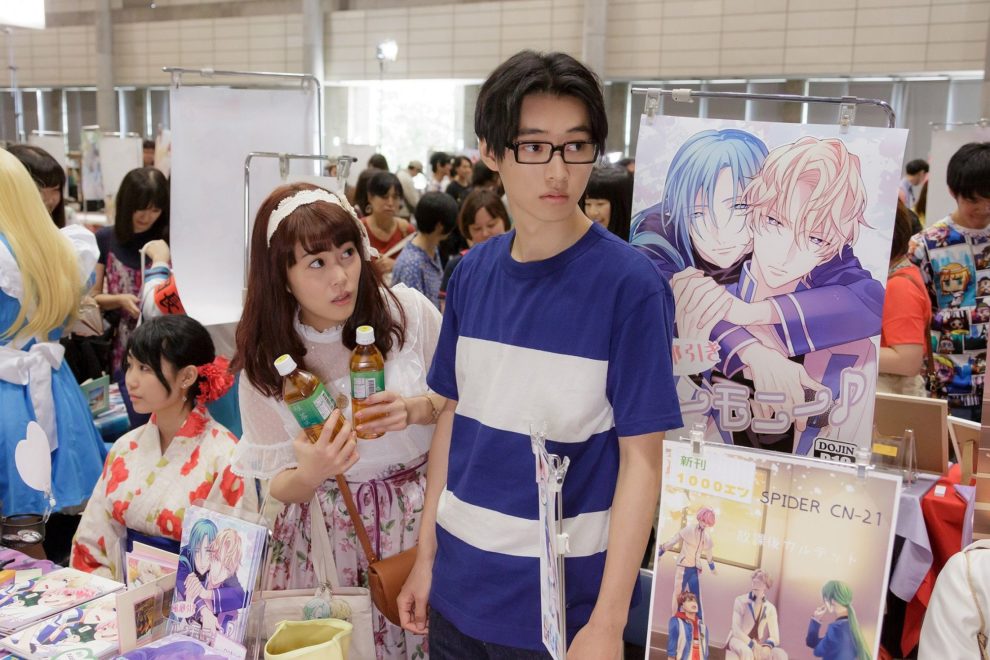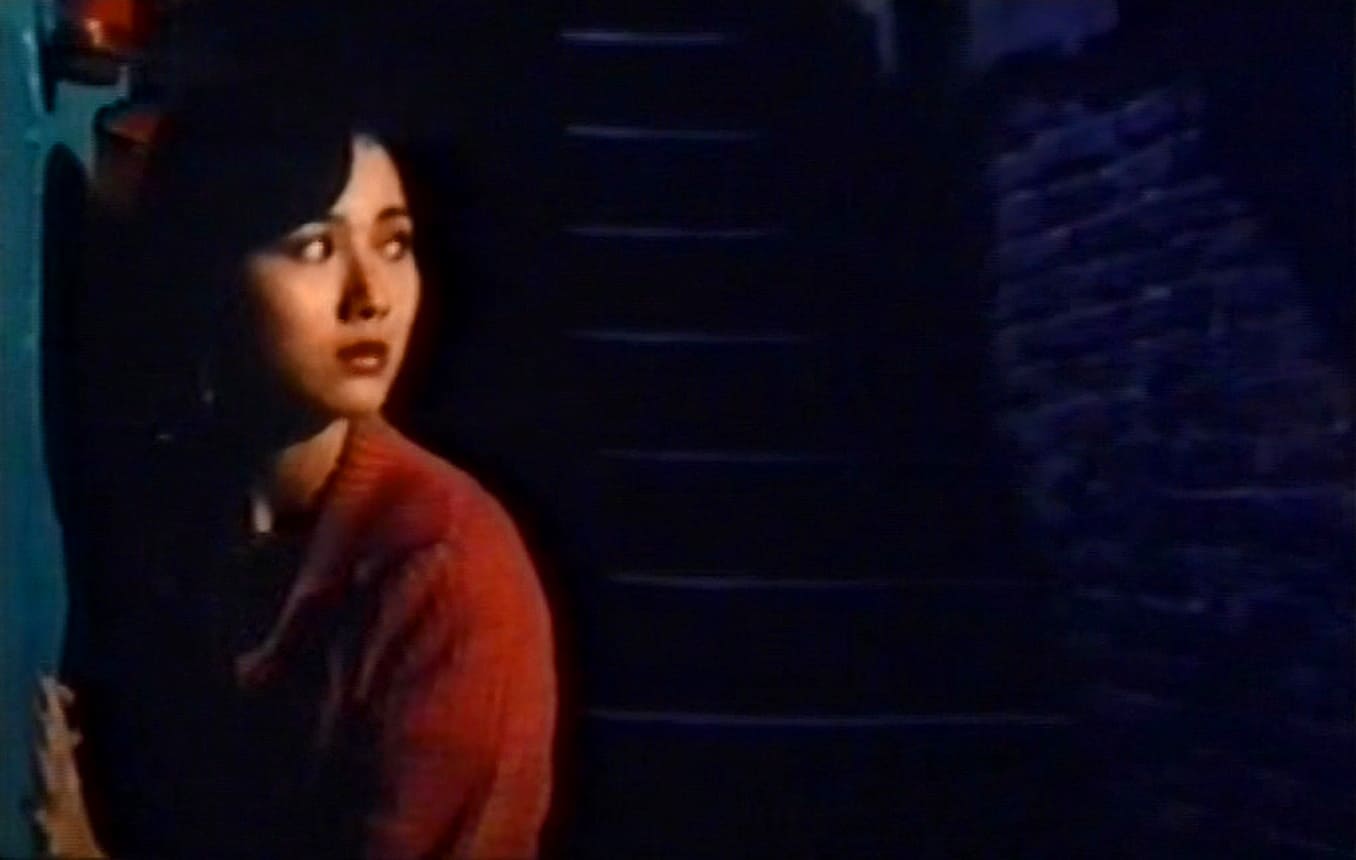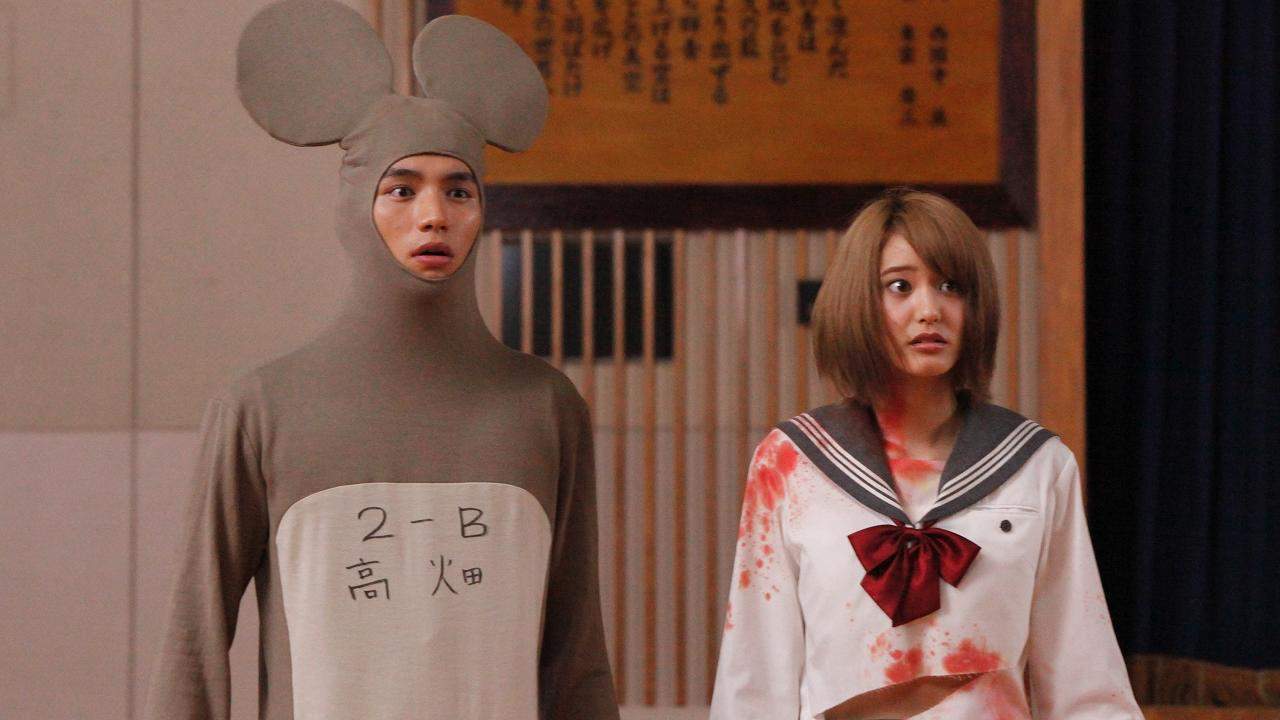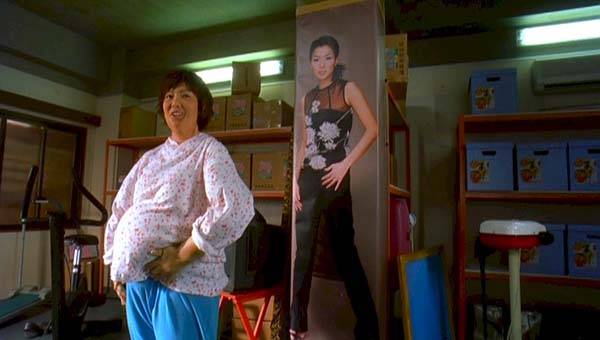After films like “Hentai Kamen 1,2” and the two Gintama adaptations, Yuichi Fukuda toned down his extreme style and decided to deal with a romance/musical, which, this time, is based on the homonymous, quite popular webmanga series that had already spawned an anime.
Wotakoi: Love Is Hard for Otaku is screening at Fantasia 2020
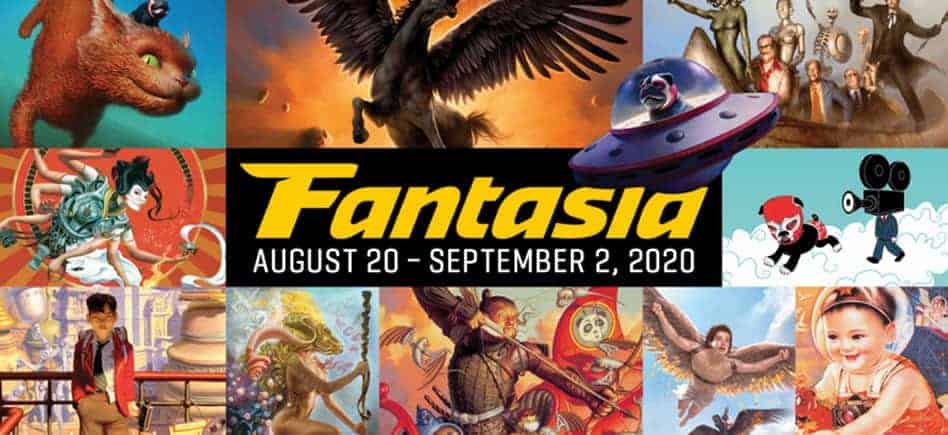
Narumi Momose is an otaku. She is obsessed with anime and manga but since she has just transferred to a new, high-class company and otakus are usually considered nerds with no social skills, not fit for such settings, she decides to hide the fact as much as possible. However, she soon finds out that her childhood friend, Hirotaka Mifuji, a video game otaku, also works in the same company, hiding the fact, although much better than she does. However, the two of them soon find themselves spending time together over video games and Hirotaka eventually asks her if they can date, in order to examine if they could become an otaku couple who also manages to keep their actual preferences hidden. The girl agrees, but, despite the fact that Hirotaka falls in love with her, she has her restrictions. A company trip to Hawaii, and the appearance of a higher up in the company, Taro Kabakura, complicate things even more.
Yuichi Fukuda directs a movie that revolves around three axes: The otaku culture and mentality, the difficulties relationships present in the contemporary Japanese society, and the “rules” of the corporate world. The first element is the one that actually dominates the narrative, since the whole movie seems to be “from otakus to otakus”, thus featuring sequences involving anime (and voice actors) and manga, video games, cosplay, and the popular music that the specific group seems to be extremely fond of, including live performances of idols. The fact that the two protagonists seem very comfortable in their nerdy world but quite uncomfortable and having to pretend outside of it, provides a rather eloquent comment about both their mentality and the way the rest of the population perceives and deals with them.
This comment brings us to the corporate world, which, in this case, is presented as an utterly “arteriosclerotic” environment, where any straying from the norm and the group mentality is perceived as a fault. The narrative also shows how difficult relationships are in this setting, both through the two protagonists and Taro's arc. However, the film also shows that corporate mentality is not the only reason relationships are hard, but also “winks” at the newly found mentality of women in Japan, who prefer to be single than to be with someone who does not ensure their happiness and security in both financial and romantic terms.
Inside this whole package of comments is hidden the true nature of the movie, which is in essence, a romance, and two more, lighter messages: “it is not so bad being an otaku” and “love can be found anywhere”.
Of course, “Wotakoi” is by no means a hard-core drama, and all the aforementioned comments are placed inside a rather cute wrapping, in distinct anime/manga fashion, that includes intense motley colors, tons of memorabilia, and much singing and dancing, as the film emerges as a musical as much as a romance. In that fashion, the cinematography by Tetsuya Kudo and Yasuyuki Suzuki is as polished as it gets, occasionally bordering on TV-commercial aesthetics, Eri Usuki's editing occasionally frantic, while the SFX that accompany the musical acts are motley as they are impressive. On the other hand, the multiple sequences inside the bar Horitaka frequents have an almost noir sense, in both style and presentation, and provide a well-needed break from all the cuteness.
The acting follows the same manga/anime rules, with the three protagonists being the archetypes of cute and aloof (also tsundere an otaku would say) in Mitsuki Takahata's performance as Narumi, utterly serious and seemingly disconnected in Kento Yamazaki's Hirotaka and almost completely absurd and constantly intense in Takumi Saitoh's Taro.
“Wotakoi: Love is Hard for Otaku” may emerge as a somewhat “too-much” for people who do not indulge in any of the elements of the otaku culture (anime, video-games, j-pop), but those who do, will definitely have a blast in here.


